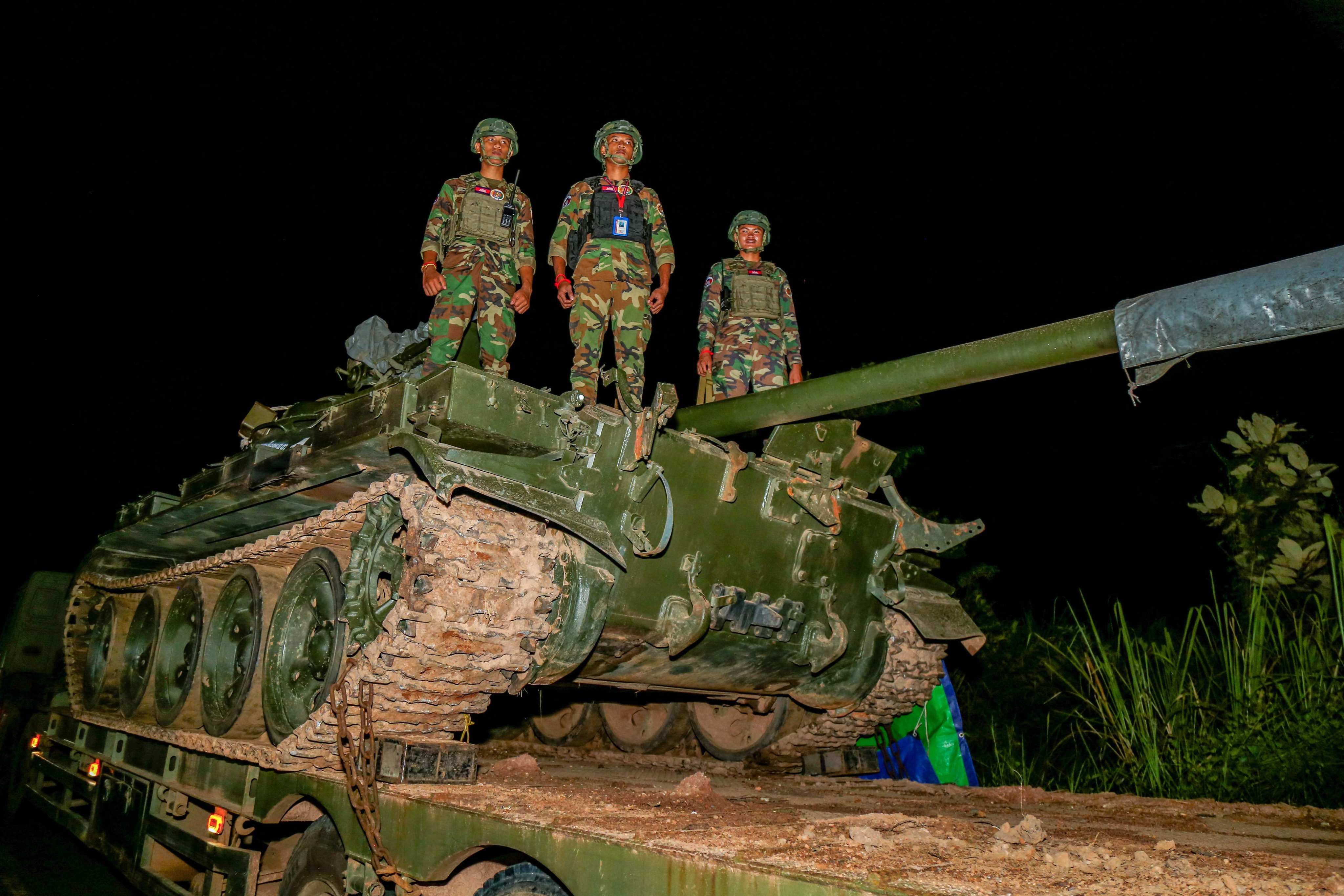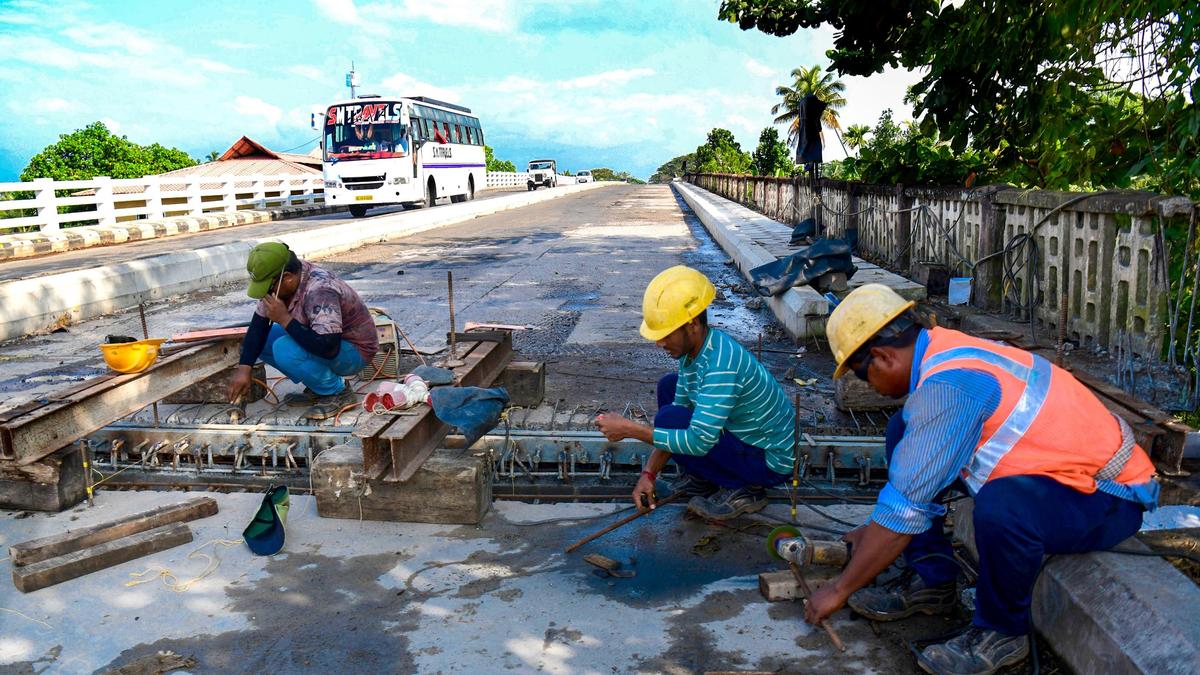Copyright scmp

The latest peace deal between Cambodia and Thailand will be difficult to uphold, according to analysts, who point to previous ceasefire breaches, as they call for a regional observer team to be enlarged to include more military officials. Analysts also note the “conspicuous absence” of China from the arrangement despite its aspirations to be a major regional player. On Sunday, United States President Donald Trump presided over the deal between Thailand and Cambodia in Malaysia’s capital, as part of his first trip to the region under his second term to attend the Asean summit. Known as the Kuala Lumpur Peace Accords, the agreement calls for a demilitarisation of the tense Thai-Cambodia border, expanding on a ceasefire deal reached in July. It also pledged to end a long-standing border dispute, which erupted again over five days in late July, killing scores on both sides. At a ceremony with the Thai and Cambodian leaders by his side, Trump, who has touted himself as a global truce-broker, said the agreement showed his administration’s pursuit of peace “in every region where we can do it”. Abdul Rahman Yaacob, a researcher at the Australian National University, voiced scepticism over the deal, citing the “shaky” previous ceasefire, when there were tensions along the Thai-Cambodian border and Cambodian villagers clashed with Thai security forces. In July, Malaysia, as the chair of the Association of Southeast Asian Nations, helped halt five days of deadly fighting. That ceasefire was mediated by Prime Minister Anwar Ibrahim, under pressure from Trump, who threatened to end separate trade talks with Thailand and Cambodia unless the conflict ceased. However, within hours of the “immediate and unconditional” ceasefire, sporadic clashes continued, with the Thai army accusing Cambodia of violating the truce. Rahman said it was difficult for the Asean interim observation team to operate along the long border, given the small number of the bloc’s defence attaches in Thailand and even fewer in Cambodia. A few Asean defence attaches accredited to Cambodia are based in Hanoi, according to Rahman, adding that the observation team should be expanded to include more military officials to enforce the latest truce deal. “The Thai-Cambodian border is porous and long, and a large number of observers will be needed to monitor the situation and facilitate the peace effort and border dispute resolution,” Rahman said. He added that Trump’s threat of tariffs was a “major driver” in bringing the two countries to the negotiating table because the US was their primary export market. “This demonstrates the US still exercises a large degree of influence in this part of the world,” Rahman said. As for China, its inability to pressure its two neighbours to a ceasefire reflects the limits of its influence, according to Rahman. “Beijing is the largest arms supplier to Thailand and Cambodia, yet it could not influence the two Southeast Asian states to halt the fighting,” he said, noting that this was something the Cambodians also found difficult to understand. “They were hoping that China could have applied pressure on Thailand to cease the fighting.” Despite its lengthy alliance with the US, Thailand has increased its military purchases from China in recent years. The Lowy Institute reported in January that China accounted for about 44 per cent of Thailand’s military imports, including tanks, submarines and air defence systems. Cambodia is almost entirely reliant on China for its arms, with imports comprising Chinese-made artillery, armoured vehicles, and naval systems, making up around 95 per cent of the total. Pointing out that “the devil is in the details”, Sok Udom Deth, an international relations professor at the Paragon International University in Phnom Penh, said the joint declaration carried more diplomatic weight and offered more “laudable” provisions. These include the withdrawal of heavy weaponry and the deployment of an Asean observation team. Deth said the deal would help de-escalate the situation in the short and medium terms and gradually restore relations between Thailand and Cambodia. “[However], it remains a ‘declaration’ and is not a legal treaty that contains enforcement clauses or ramifications in case of future violations.” While “well-received” in Cambodia, the declaration is not a long-term solution, according to Deth, as it does not address two major causes of the border problem – disagreement over maps to demarcate their boundaries and the venue for dispute resolution. “Thailand has repeatedly declared that it does not recognise the ICJ’s jurisdiction,” Deth said, referring to the International Court of Justice. The border conflict stems from ambiguous colonial-era maps that have led to a decades-long territorial dispute, with both sides having different interpretations on which maps to use to settle their differences. Cambodia is seeking a resolution through the ICJ, but Thailand prefers bilateral talks through a Joint Boundary Commission established in 2000, citing previous rulings that have gone against it. Deth said true peace could only occur with liberal democratic governments in both countries that “adhere to international laws and do not politicise history”. “[They must also] embrace a regional identity as fellow Asean nations who can mutually benefit from each other’s interdependence,” he said. Despite Trump presiding at the event, Deth said the deal was facilitated by the Asean chair and signed at the Asean summit. “[This] reinforces Asean’s relevance and centrality.” Talk of Washington abandoning Asean was sparked by inconsistent US diplomatic engagement with the region in recent years, including Trump’s repeated absence from the bloc’s summits during his previous term. Recent US moves towards unilateral trade policies and the return of an “America First” mindset have also eroded regional trust, with many viewing Washington as an unreliable partner. As the region’s dominant economic partner, China’s substantial investments and its status as a leading export market have helped improve local infrastructure and created economic opportunities. In contrast with Washington’s rising protectionist stance, China has presented itself as a defender of free trade. Nonetheless, pointing to “China’s conspicuous absence” from the peace deal despite its regional aspirations, Deth said that Washington’s political clout would still play a major role in Asean’s affairs. “[It] signals that China’s dominance or US abandonment of the region is not a foregone conclusion.”



